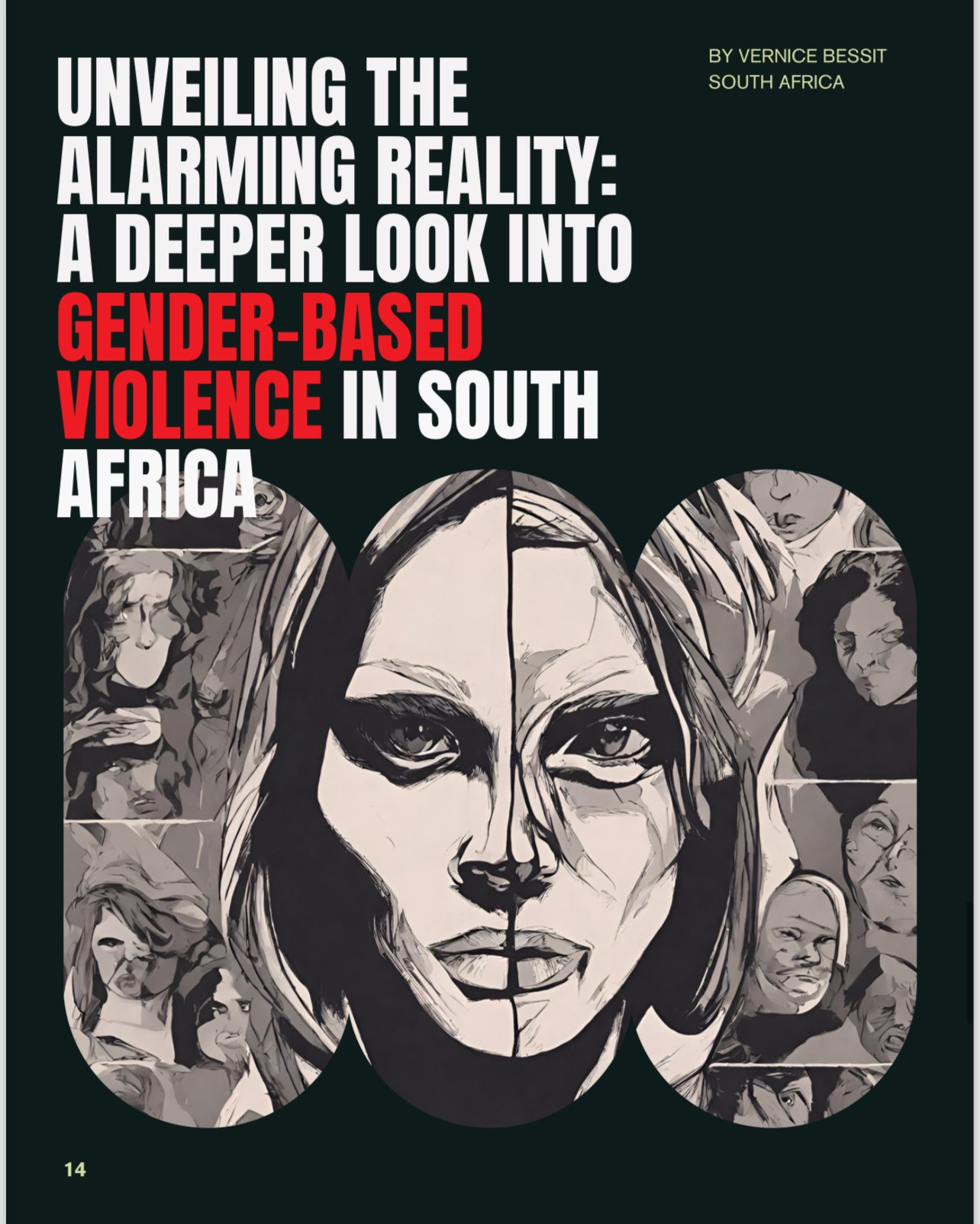By Vernice Bessit (South Africa)
South Africa, a nation known for its vibrant culture and breathtaking landscapes, has unfortunately become synonymous with a deeply rooted and pervasive issue: gender-based violence (GBV). Despite ongoing efforts to address this crisis, the recent release of second-quarter crime statistics for 2023/2024 by Police Minister Bheki Cele paints a distressing picture. The numbers not only represent statistical data but serve as a stark reminder of the urgent need for comprehensive and sustained action to combat GBV in the country.
Currently, the crime statistics for July, August, and September 2023 reveal a deeply troubling reality. According to Minister Bheki Cele’s report, South Africa recorded a staggering 10,516 cases of rape during these three months. Each reported case is a testament to the immense suffering experienced by victims of sexual violence, underscoring the urgent need for intervention and prevention.
Additionally, the report brings to light 1,514 cases of attempted murder, pointing to a disturbingly high level of aggression directed specifically at women. These attempts at taking lives demonstrate the severity of the situation and the urgent need for protective measures and heightened vigilance.
Furthermore, there were 14,401 reported cases of assaults against female victims during the same period. These incidents highlight the pervasive nature of violence against women, extending beyond sexual assault to encompass physical harm and emotional trauma.
Becoming a Disturbing Trend Femicide is deeply situated within the expansive framework of gender-based violence, and emerges as a particularly distressing trend in South Africa. This term encompasses the intentional killing of women solely because of their gender, representing a stark manifestation of the pervasive and deeply rooted violence against women in the country. The gravity of this issue is further underscored when examining crime statistics, emphasizing the urgent need for immediate attention, intervention, and a comprehensive strategy to combat this heinous form of violence.
Addressing femicide requires a multi-faceted approach that encompasses legal reforms, social initiatives, educational programs, and economic empowerment. Legislation must be strengthened to ensure that perpetrators of femicide face severe consequences, and law enforcement agencies should be equipped with the necessary resources and training to handle cases of gender-based violence effectively. Additionally, there is a crucial need for societal awareness campaigns that challenge harmful gender norms, promote respect, and foster empathy.
To effectively address gender-based violence, it is crucial to delve into the root causes that perpetuate this pervasive issue. Societal attitudes, deeply ingrained gender stereotypes, and a culture of silence contribute to the perpetuation of violence against women.
Economic disparities, inadequate law enforcement, and a lack of comprehensive support systems further exacerbate the problem.
There is a gap in Education and Awareness as they are key elements in challenging societal norms that perpetuate gender-based violence. Promoting gender equality from an early age and encouraging respect and understanding between genders are essential. Additionally, raising awareness about available support services and fostering a culture of reporting and intervention are crucial steps in combating GBV.
Governmental agencies, law enforcement, and community organizations must work collaboratively to address gender-based violence comprehensively. Strengthening law enforcement, improving victim support services, and implementing effective prevention strategies are critical components of a holistic approach to combating GBV. Communities must actively engage in dialogue, challenge harmful norms, and create safe spaces for victims to come forward
Keep in mind the recent crime statistics for South Africa highlight the urgent need for a variety of approaches to tackle gender-based violence. Femicide, rape, and assaults against women are not isolated incidents but symptoms of a broader societal issue that demands immediate attention. It is imperative for the government, civil society, and individuals to unite in the fight against gender-based violence, working towards creating a safer and more equitable society for all. The path forward involves sustained efforts in education, awareness, and comprehensive support systems to break the cycle of violence and build a future where all individuals can live free from fear and a harmless society for all.
Vernice Bessit is a writer from South Africa





